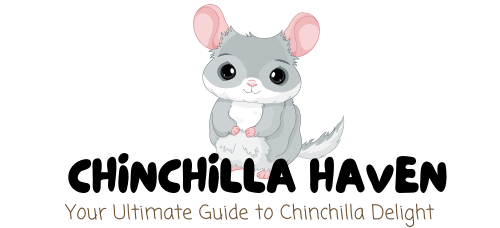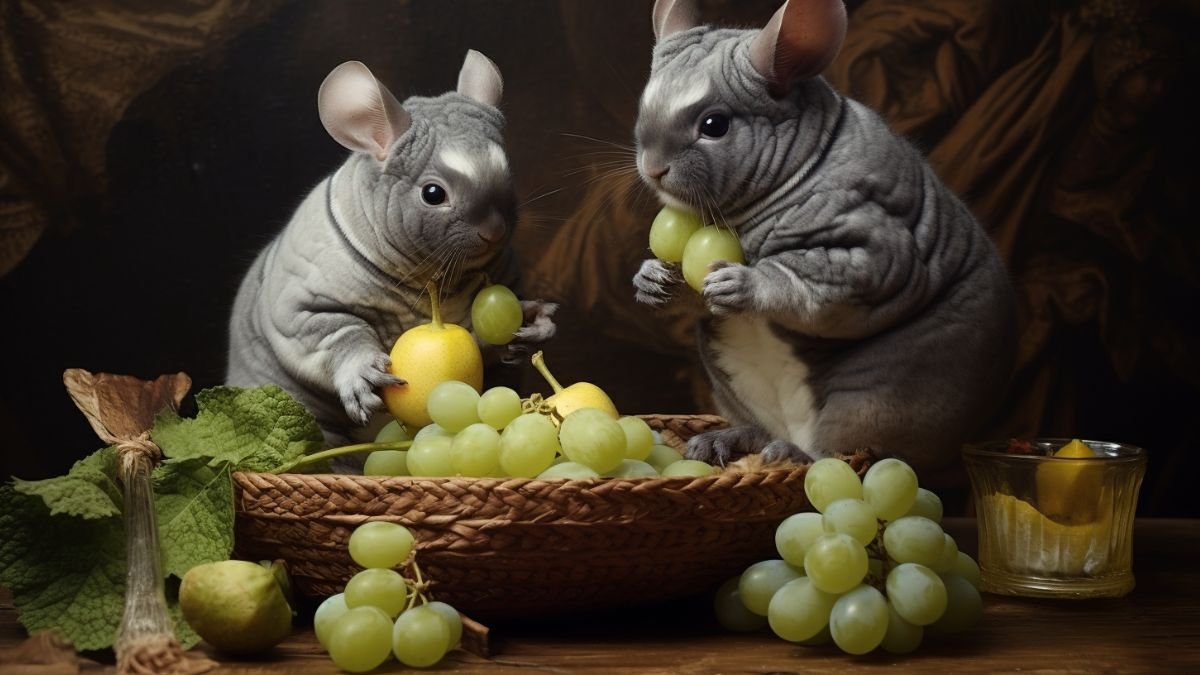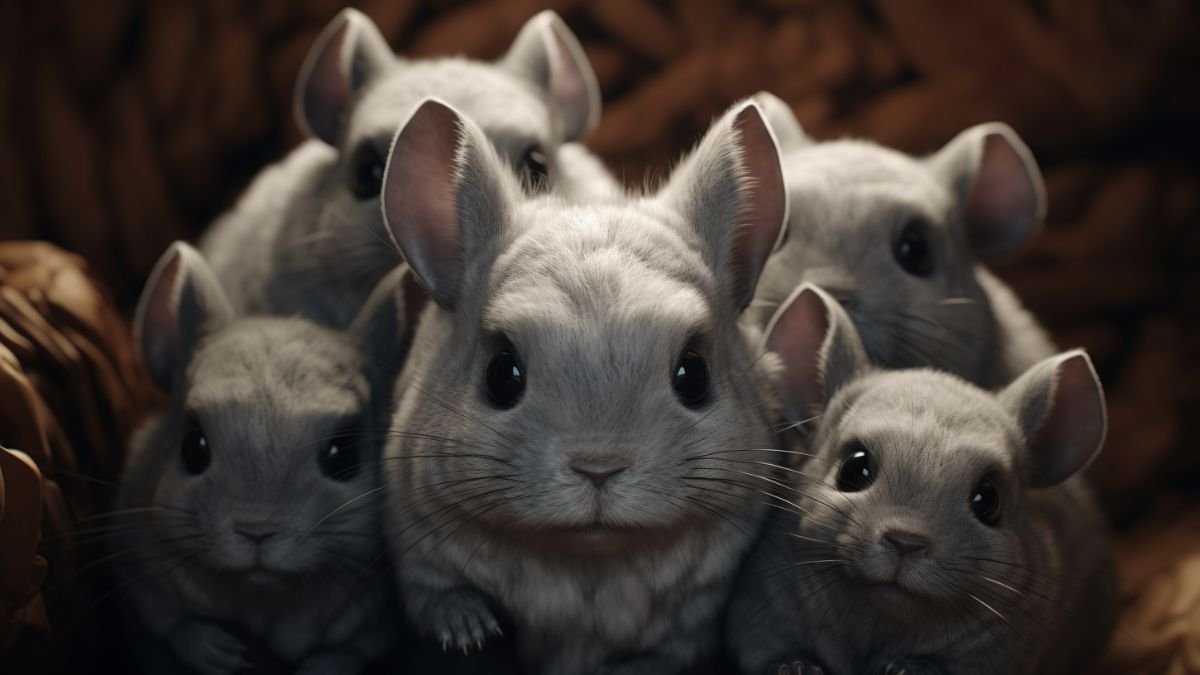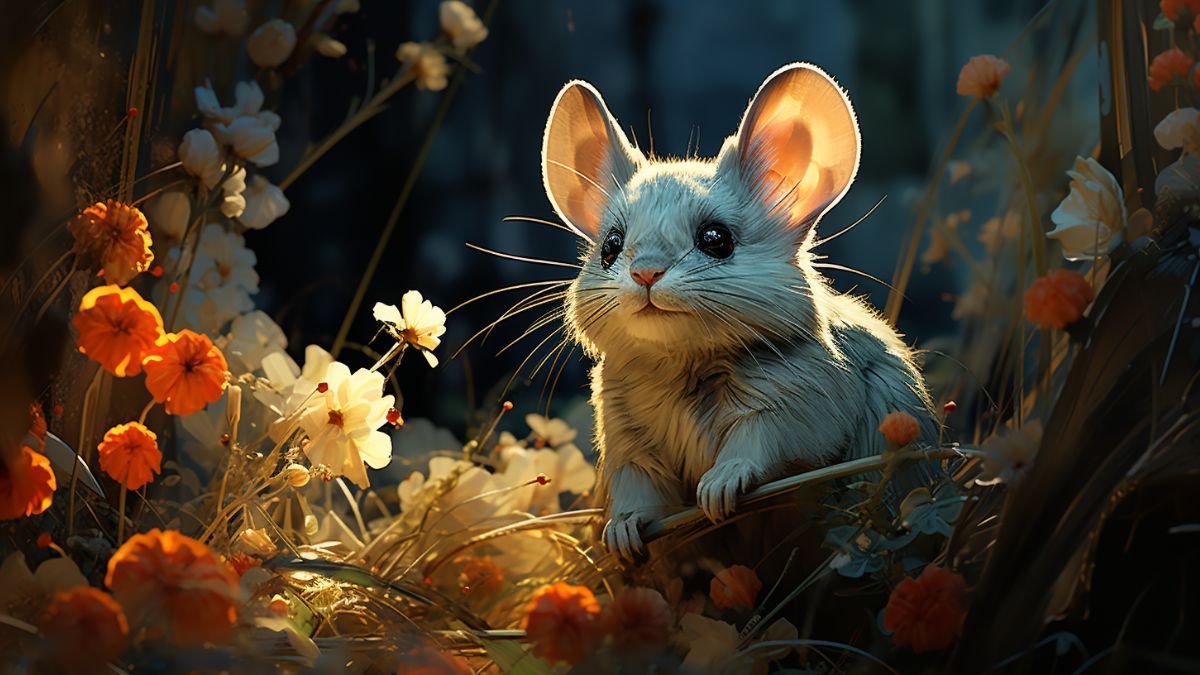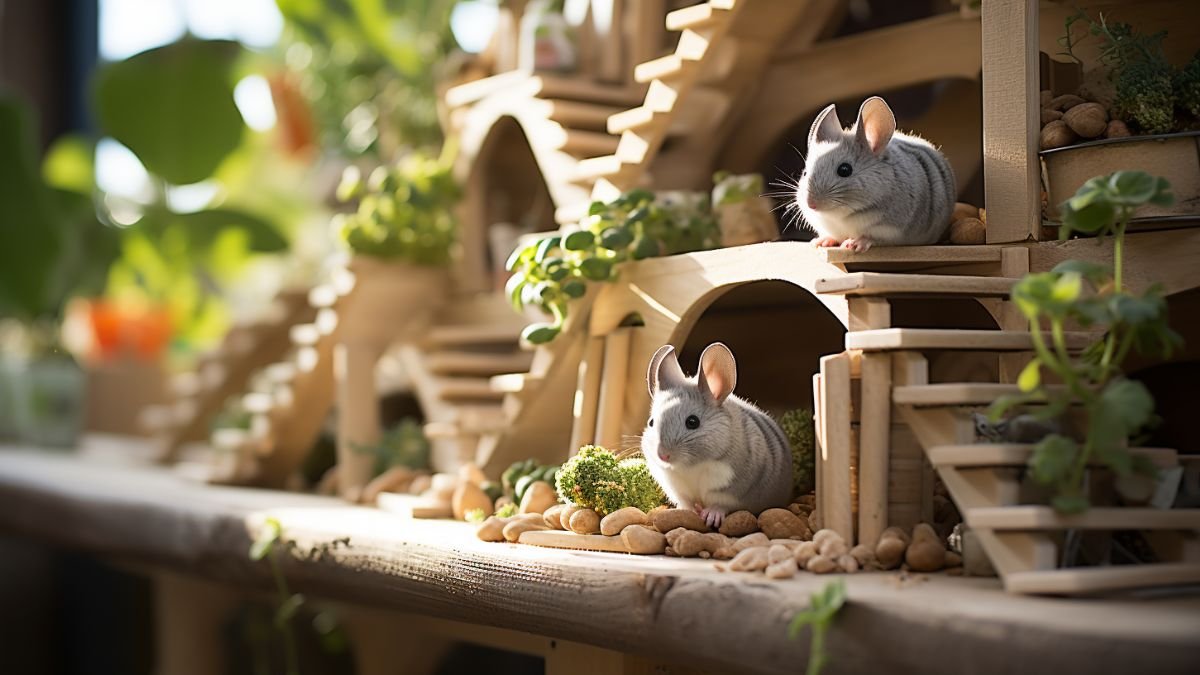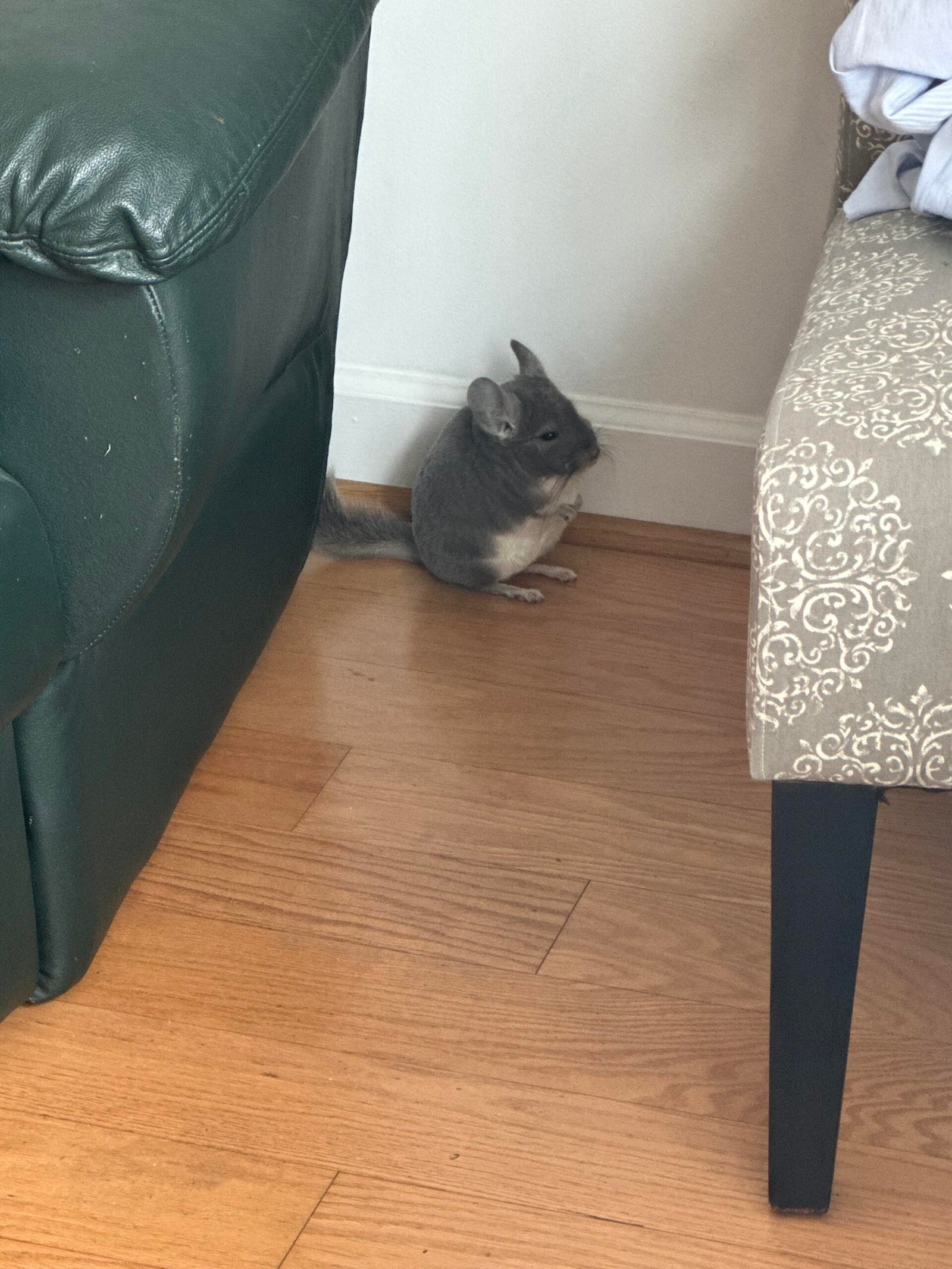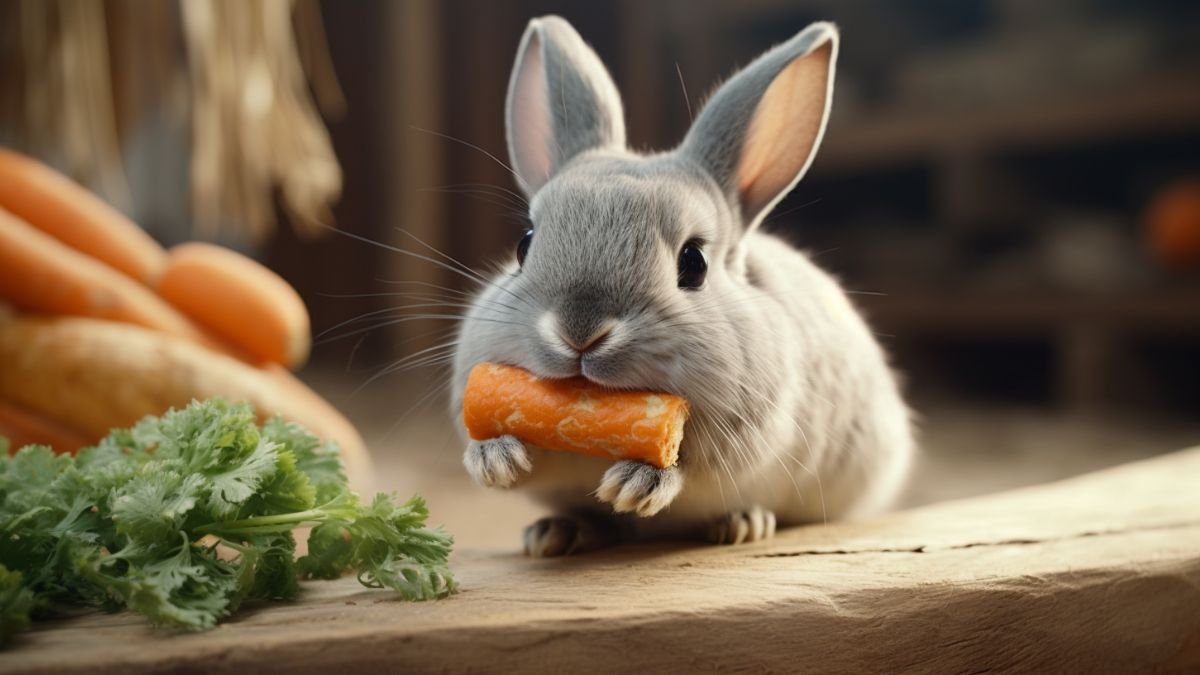
Are you a proud owner of a chinchilla, the adorable little fluffball? If so, you might wonder what treats you can safely offer your furry friend. One common question that often arises is whether chinchillas can eat carrots. In this article, we’ll explore the answer to this query and shed light on the nutritional needs of these delightful pets.
Carrots are undoubtedly tasty and packed with essential nutrients for humans. However, when it comes to chinchillas, things are a little different. While chinchillas can technically consume carrots, it’s essential to exercise caution due to their unique dietary requirements.
Chinchillas have sensitive digestive systems, and their diet primarily consists of hay and pellets specially formulated for their nutritional needs. These small herbivores thrive on a high-fiber, low-fat, and low-sugar diet. Conversely, carrots contain natural sugars and starches, which can disrupt the delicate balance of a chinchilla’s digestive system.
If you still want to treat your chinchilla to taste carrot goodness, moderation is key. Consider offering a tiny piece as an occasional treat instead of a regular part of their diet. This way, you can avoid any potential digestive upsets or health issues.
It’s important to note that a well-balanced diet is crucial for the overall well-being of your chinchilla. Alongside hay and pellets, fresh water should always be available. Additionally, chinchillas can enjoy small amounts of fresh vegetables and fruits like leafy greens, apples, and pears as occasional supplements to their primary diet.
Remember, each chinchilla is unique; some may have more sensitive stomachs than others. As a responsible pet owner, monitoring your chinchilla’s reaction to any new food introduced into their diet is crucial. If you notice any signs of digestive distress, such as diarrhea or a loss of appetite, it’s best to consult a veterinarian for guidance.
while chinchillas can eat carrots, offering them in moderation is advisable. Stick to their usual diet of hay and pellets, ensuring they receive the necessary nutrients for a healthy and happy life. Treats should be given sparingly, and always keep an eye on your chinchilla’s well-being. With proper care and attention to their dietary needs, you’ll have a contented chinchilla companion by your side.
Nutritional Benefits of Carrots for Chinchillas
Are you aware that carrots are delicious for us and highly beneficial for our furry little friends, chinchillas? These adorable rodents can enjoy nutritional perks from munching on these vibrant orange veggies. Let’s dive into the fantastic world of carrots and discover how they can contribute to the well-being of chinchillas.
Carrots are packed with essential vitamins and minerals that can boost your chinchilla’s diet. One standout nutrient found in carrots is vitamin A. This crucial vitamin is vital in maintaining good eyesight, promoting healthy skin and fur, and supporting overall immune function. Incorporating carrots into your chinchilla’s diet can help support their visual acuity and keep their fur looking lustrous and radiant.
Another noteworthy benefit of carrots is their high fiber content. Chinchillas have sensitive digestive systems, and a fiber-rich diet is essential for their well-being. Carrots possess both soluble and insoluble fiber, which aids in proper digestion and helps prevent gastrointestinal issues. The fibrous nature of carrots can assist in keeping your chinchilla’s gut healthy and functioning smoothly.
Not only do carrots bring valuable vitamins and fiber to the table, but they also offer hydration. Chinchillas naturally obtain most of their water intake from their diet, and carrots have a high water content. Feeding your chinchilla carrots can supplement their hydration levels and ensure they stay properly hydrated throughout the day.
As much as chinchillas adore munching on carrots, it’s important to remember that moderation is vital. While carrots are beneficial, they should be given as a treat rather than a primary food source. Aim to incorporate small, controlled portions into your chinchilla’s diet alongside their regular hay and pellet-based meals. This way, you can strike a balance between providing them with the nutritional benefits of carrots while still meeting their overall dietary requirements.
carrots can be a delightful addition to your chinchilla’s diet, offering various nutritional benefits. From supporting their vision and maintaining healthy fur to aiding digestion and providing hydration, these vibrant vegetables pack quite the punch. Remember to serve them in moderation, ensuring your chinchilla reap all the rewards without compromising their well-being.
Potential Risks of Feeding Carrots to Chinchillas
Are you considering feeding carrots to your adorable chinchilla? While it may seem like a healthy treat, potential risks are involved. Let’s delve into the details and explore why carrots might not be the best choice for your furry friend.
Carrots are widely known as nutritious human vegetables packed with vitamins and fiber. However, chinchillas have specific dietary requirements that differ from ours. These tiny rodents have sensitive digestive systems, and their diet should primarily consist of high-quality hay, pellets, and limited amounts of fresh vegetables.
One of the main concerns with feeding carrots to chinchillas is their high sugar content. Carrots naturally contain sugars, such as sucrose, which can be difficult for chinchillas to digest correctly. Excessive sugar intake may lead to gastrointestinal issues like diarrhea or an upset stomach. Chinchillas are prone to digestive problems, so avoiding anything that could disrupt their delicate balance is crucial.
Moreover, carrots also contain a significant amount of water. Chinchillas are desert animals and have adapted to survive in dry environments. Their digestive systems are designed to process low-moisture foods like hay rather than watery vegetables. Feeding carrots to chinchillas can potentially cause diarrhea or other hydration-related complications.
Another aspect to consider is the high phosphorus content in carrots. Chinchillas require a balanced calcium-to-phosphorus ratio in their diet to maintain optimal health. When the phosphorus level is too high, it can negatively impact calcium absorption, leading to possible bone and teeth problems.
while carrots might be a healthy choice, they pose potential risks when fed to chinchillas. It’s essential to prioritize their specific dietary needs and stick to a well-balanced chinchilla pellet and hay-based diet. If you’re unsure about what treats suit your chinchilla, consult a veterinarian specializing in exotic pets. Your chinchilla’s health and well-being should always be the top priority.
How to Introduce Carrots into a Chinchilla’s Diet Safely
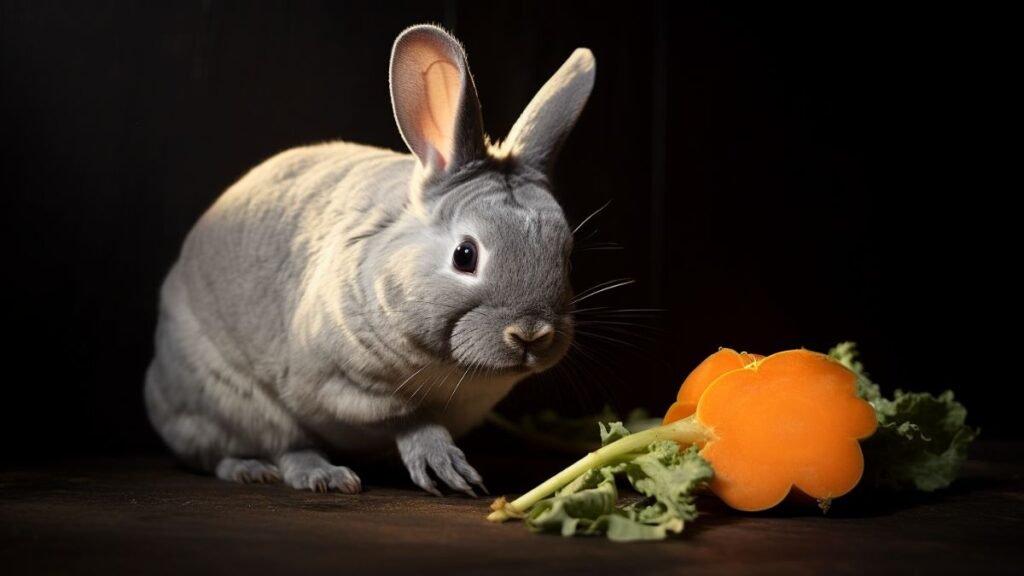
Are you ready to learn how to introduce carrots into your chinchilla’s diet safely? Well, look no further! In this article, we’ll guide you through incorporating carrots into your furry friend’s meals without compromising their health.
When it comes to adding new foods to a chinchilla’s diet, a gradual approach is essential. This holds for introducing carrots as well. Chinchillas have sensitive digestive systems, so sudden dietary changes can lead to digestive upset. To avoid potential issues, start by offering small carrots as an occasional treat rather than a staple food.
Begin by selecting fresh, organic carrots from a trusted source. Wash them thoroughly and remove any dirt or debris. It’s recommended to peel the carrots, as the outer skin may be treated with pesticides or waxed, harming your chinchilla.
Next, cut the carrot into tiny, bite-sized pieces. Chinchillas have small mouths and may struggle to chew large chunks. Appropriate portions will help prevent choking hazards and make it easier for your chinchilla to consume.
Now it’s time for the moment of truth: introducing the carrots to your chinchilla! Place a small piece in their food dish alongside their regular diet. Observe their reaction and monitor their feces over the next few days. If your chinchilla shows no signs of digestive distress, such as diarrhea or decreased appetite, you can gradually increase the amount of carrot offered.
Remember, moderation is key. Even though carrots are packed with nutrients like vitamin A, excessive consumption can lead to imbalances in your chinchilla’s diet. Too many carrots can cause digestive upset or weight gain. Always prioritize a balanced diet that consists primarily of hay, pellets, and limited amounts of fresh vegetables.
introducing carrots into your chinchilla’s diet can be done safely and gradually. Remember to select fresh, organic carrots, cut them into small pieces, and offer them as occasional treats. Monitor your chinchilla’s reaction and adjust the portion size accordingly. By taking these steps, you can ensure a happy and healthy diet for your adorable furry friend.
Recommended Serving Size of Carrots for Chinchillas
Are you wondering about the ideal serving size of carrots for your chinchillas? Well, fret not because I’ve got you covered! When feeding your furry friends, it’s essential to strike the right balance and provide them with a wholesome diet. Carrots can be a tasty treat for chinchillas, but moderation is key.
Chinchillas are herbivores whose diet mainly consists of hay, pellets, and fresh water. While carrots can be a nutritious addition, they should be given in small quantities due to their high sugar content. Too many carrots can lead to digestive issues and weight gain in chinchillas.
A recommended serving size for carrots would be about a teaspoon per day. This small portion ensures that your chinchilla gets a taste of this crunchy vegetable without going overboard. Remember, chinchillas have sensitive digestive systems, so introducing new foods gradually is essential. Start by offering a tiny piece of carrot and observe how your chinchilla reacts before increasing the serving size.
To maintain a healthy balance, providing a diverse diet for your chinchilla is crucial. Alongside carrots, make sure to offer a variety of other fresh vegetables and occasional fruits. Leafy greens like spinach, kale, and cilantro are excellent options. Just like humans, chinchillas need a range of nutrients to thrive.
Now that you know the recommended serving size of carrots for chinchillas, it’s time to indulge your little friend with a treat! However, always keep in mind that moderation is vital. You can ensure your chinchilla stays happy, healthy, and energetic by providing a balanced diet and monitoring their intake.
So treat your chinchilla to a delicious carrot snack, and watch them nibble away with delight!
